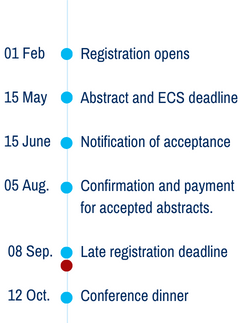Dates: October 10-13th, 2022
Venue: Pynten, IMR, Bergen, Norway
Goal of the symposium
This 4-day ICES symposium on capelin will seek to revise and expand our knowledge base on capelin biology, ecology, and roles in Arctic and Sub-Arctic ecosystems, with focus on capelin stocks in the (i) Barents Sea, (ii) waters around Iceland–East Greenland–Jan Mayen, (iii) the Newfoundland–Labrador Shelf, and (iv) Gulf of Alaska and Bering Sea. The symposium will consist of four theme sessions and will include both oral and poster presentations and panel discussions, covering topics ranging from the bottom-up processes that affect the capelin habitat and population dynamics, to the impact of variable capelin production on the larger food web and the challenges that stock assessors and managers face when monitoring, assessing and setting fisheries quotas for this keystone forage fish in a changing environment.
Background
The first and only ICES symposium on capelin – ‘‘Capelin – What Are They Good For? Biology, Management, and the Ecological Role of Capelin”— was organized in July 2001, in Reykjavik, Iceland. Key recommendations (among others) from this symposium included:
“Because capelin are so important in the ecosystem, it might be useful to consider setting up several small study areas, where the role of capelin can be studied on a comparative basis”
“It is obvious that there are both similarities and differences that would be useful starting points for coordinated worldwide capelin research, and it is recommended that researchers from different countries pursue these aspects of capelin biology”.
“Closer cooperation between oceanographers and capelin biologists should be encouraged to further understanding of the reaction of capelin to climate change and variability”
Two decades have passed since the Reykjavik meeting, during which capelin populations have fluctuated considerably and large-scale shifts in the spatial distribution at all life stages has been observed in all Sub-Arctic systems. This symposium is motivated by the Reykjavik symposium, and we suggest a modification of “Closer cooperation between oceanographers and capelin biologists …” to “Closer cooperation among all relevant disciplines – oceanography, biology/ecology, mathematics/statistics, …” to bring together multi-institutional and multi-disciplinary expertise with an overarching goal of revising and expanding our knowledge base on the capelin biology, ecology, and roles in the Arctic and Sub-Arctic ecosystems.
Scientific program
The symposium will have a broad focus on capelin biology, ecology, and production, including processes affecting the ecosystems in which capelin live. We welcome contributions on capelin physiology, genetics and interplay with the physical ocean environment, triggers of capelin migration, migration patterns and adaptation strategies, impact(s) of variable capelin production on food webs in North Atlantic systems, and aspects of management of commercial fisheries for capelin in North Atlantic marine systems under evolving climate change.
The symposium will consist of four theme sessions, followed by panel discussions on selected topics with contributors to the sessions and invited experts. We are interested in bringing together scientists with empirical/statistical and numerical modelling backgrounds from different disciplines.
We are committed to highlighting early career scientists as keynote speakers, conveners, and presenters in the sessions in order to promote new ideas and encourage networking.
Contributors to the symposium are encouraged to submit their work to a special journal issue in ICES Journal of Marine Science.

